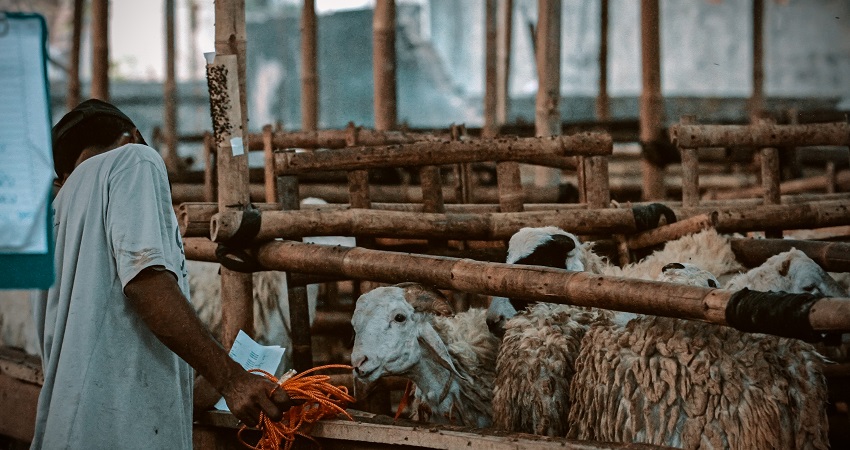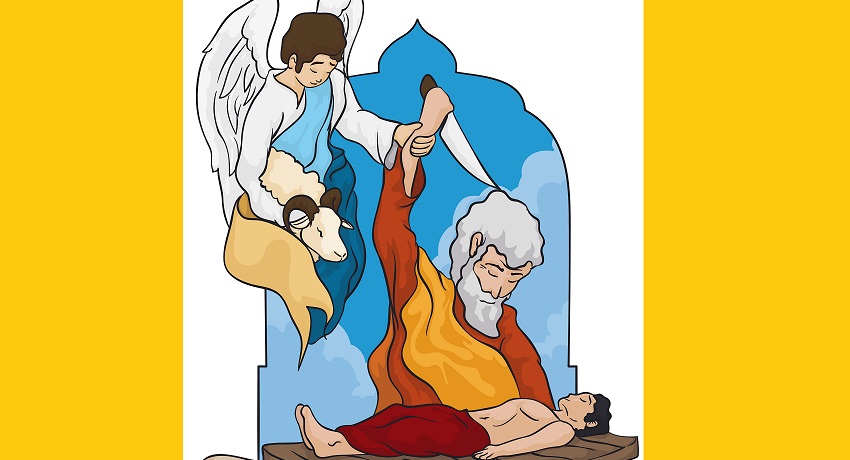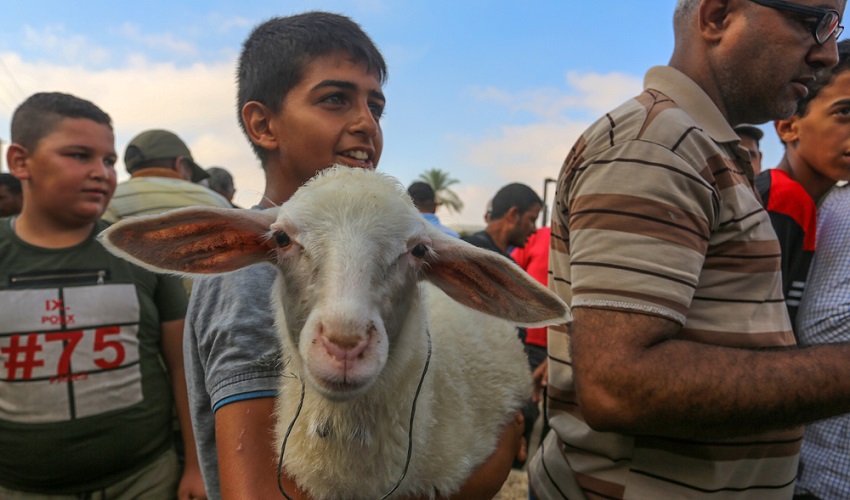As per Abrahmic religions, the history of animal sacrifice dates to the beginning of mankind. Qurbani in Islam, specifically, is an important ritual that holds immense significance. Let’s take a closer look at the exact meaning and history of animal sacrifice to understand what it signifies.
What is the significance of Qurbani in Islam?
Qurbani, also known as Udiyah in Arabic is the practice of sacrificing an animal for god. It is one of the most religious rituals practised by financially stable Muslims for the sake of the almighty. According to Islamic law, Qurbani or Udiyah refers to the sacrifice of a specific animal, by a specific person and on a specific day. Qurbani is not just butchering an animal and distributing its meat, but drawing oneself near to god. To gain Allah’s goodness, blessing and pleasure, the practice of sacrificing animals such as goat, camel, sheep and cow is fulfilled by Muslims.
Suggested Read: Life After Death In Islam: The Concept And The 14 Stages Of Afterlife
In the Holy Quran, Allah Almighty says: “Therefore turn in prayer to your Lord and sacrifice (to Him only).” (Quran, 108:2)
The early history of animal sacrifice
The sacrifice of an animal by Abel was the first sacrifice traced in the history of Islam. Abel and Cain were the firstborn sons of Adam and Eve. To resolve the difference between them, Adam asked his sons to make sacrifices in the name of Allah. An influential Muslim historian narrates the story of Abel (Habil) who sacrificed his sheep, and Cain (Qabil) who offered a part of the crops from his land. The procedure ordained by the god was that a fire would plunge from the heavens and annihilate the accepted sacrifice. Then, the fire came down and accepted the sacrifice of Abel by wrapping the animal butchered by him in the fire. Cain’s sacrifice was not accepted by the almighty, resulting in the first human death in the history of Islam, when he murdered his brother because of jealously. After not seeking remorse for his actions, Cain was not forgiven by god.
The story tells us that sincerity and intention are the two most important aspects of Qurbani in Islam.
(Quran 5:27 – And recite to them the story of Adam’s two sons, in truth, when they both offered a sacrifice [to Allah ], and it was accepted from one of them but was not accepted from the other. Said [the latter], “I will surely kill you.” Said [the former], “Indeed, Allah only accepts from the righteous [who fear Him]).
Qurbani history in Islam: The sacrifice of Ibrahim
The history of Qurbani in Islam is traced back to the time of Prophet Ibrahim, who envisaged that Allah has ordered him to forego his most precious thing. The Prophet, realizing his son’s life is the most precious thing to him, let his son know why he is taking him out of the house.
As it was God’s command, his son didn’t question him and said,
“O my father! Do as you are commanded. If Allah wills, you shall find me of the patient” (Qur’an, 37:102)
Both son and father were prepared to relinquish Ismail’s life, but the Shaytan deterred them. Shaytan tried to persuade Ibrahim and Ismail that they are about to commit a terrible crime, but they certified that if it is from Allah, they must accept it. Shaytan appeared separately in front of Ibrahim, Ismail and Hajarah (Ibrahim’s wife). Each time he was stoned by them. It is this stoning that people still remember at Hajj.
Ibrahim turned towards his son’s face and prepared a knife to kill him. As Ibrahim was about to kill his son and Ismail was about to die, they both remembered Allah and testified their faith in him. When Ibrahim prepared himself to kill his son and directed the knife towards Ismail’s neck, Allah replaced his son with a white horned ram. Ibrahim relinquished the ram instead of his son; like the stoning of the pillars, this forego is remembered by Muslims every year at Hajj.
The story represents the reward and grace received by Ibrahim’s family as a result of the submission from Allah. It is believed, the ram that was sent down to Ibrahim, was the same ram that was sacrificed by Habil (the son of Adam and Eve). Mohammed Prophet hanged the horns of the ram in the holy Kaaba as the significance of sacrifices traced in the history of Islam. As illustrated by Mohammed Prophet, our heritage is valuable and should be honoured by us.
Eid Al Adha – The Festival of Sacrifice
Eid Al Adha, also known as Bakra Eid symbolises the great history of Qurbani in Islam. As per the Islamic lunar calendar, Eid al-Adha falls on the 10th day of Dhu al-Hijjah and the sacrifice of an animal is legal from the morning of the 10th to the sunset of the 13th day. During the sacrifice, it is important to keep our intentions sincere, as it is not the animal sacrifice that matters but our willingness to submit wholeheartedly to Allah.
The traditional way to celebrate Eid Al Adha is to sacrifice an animal (goat, sheep, camel or cow) after offering prayer to the almighty. On this day, Muslims visit the mosque, exchange gifts and feast together.
Suggested Read: 9 Scientific Facts In The Quran That Will Surprise You
History Of Animal Sacrifice Or Qurbani In Islam FAQs
What is Qurbani?
Qurbani, also known as Udiyah in Arabic, is the practice of sacrificing an animal for god. It is one of the most religious rituals practised by financially stable Muslims for the sake of the almighty.
Which was the first sacrifice in history?
The sacrifice of an animal by Abel was the first sacrifice traced in the history of Islam. Abel and Cain were the firstborn sons of Adam and Eve. To resolve the difference between them, Adam asked his sons to make sacrifices in the name of Allah.
What is the story behind the sacrifice of Ibrahim?
In Islam, the practice of Qurbani is traced back to the time of Prophet Ibrahim, who envisaged that Allah has ordered him to forego his most precious thing. The Prophet, realizing his son’s life is the most precious thing to him, let his son know why he is taking him out of the house.
Which festival is celebrated in representing sacrifice?
Eid Al Adha, also known as Bakra Eid symbolises the great history of Qurbani in the track of Islam.
How is Eid Al Adha celebrated?
The traditional way to celebrate Eid Al Adha is to sacrifice an animal (goat, sheep, camel or cow) after offering prayer to the almighty. On this day, Muslims visit the mosque, exchange gifts and feast together.










